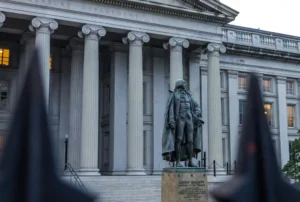February 8, 2012; Source: Christian Science Monitor | It is hugely disappointing to many people, including the New York Times editorial page editors and former Secretary of Labor Robert Reich, that President Obama is now not just tolerating, but endorsing, the Super PACs promoting his reelection. The White House has officially announced that the Obama campaign is going to promote the role of its favorite Super PAC, Priorities USA Action, which was established by former Obama aides. The White House will all but coordinate with the PAC, even to the point of authorizing key administration staff and associates to appear and speak at Priorities USA Action events.
In 2008, Barack Obama took a reasonably high road in campaign financing. Although he opted out of public financing limitations, he eschewed campaign financing possibilities from moneyed “independent” campaign organizations and from lobbyists. He even declared, later, that the no-holds-barred system of special interest corporate moneys flowing into purportedly independent groups as a result of the Supreme Court’s Citizens United decision was a “threat to our democracy.”
Some might say that the president’s position on his affiliated Super PAC connotes a remarkable tin ear. Among the few policy agendas that have appeared to capture the imagination of the Occupy Wall Street movement is the power and influence of big money in elections. Did the president and his advisors simply miss the critique that the 99 percent are upset with the dominance of the one percent in the political system?
If there was a fig leaf of credence to the notion that the Super PACs are independent of the campaigns, President Obama has officially made it clear that there is no real firewall between official campaigns and independent political committees. Responding to Obama aide Jim Messina’s contention that Obama couldn’t “unilaterally disarm” in the face of competition from Super PACs such as Karl Rove’s Crossroads GPS, the New York Times gave the Obama Administration no quarter:
Sign up for our free newsletters
Subscribe to NPQ's newsletters to have our top stories delivered directly to your inbox.
By signing up, you agree to our privacy policy and terms of use, and to receive messages from NPQ and our partners.
“(I)f President Obama had refused to join in this downward spiral — and if he had proudly campaigned on that refusal — he and his campaign might have made up for that deficit in other ways: with more small contributions, and more support, from a public disgusted by the outsize influence of big money…But now Mr. Obama has given up that higher ground…He is…telling the country that simply getting re-elected is bigger than standing on principle.”
Former Secretary Reich’s critique is also unsparing. He asks, “How many billionaires does it take to buy a presidential election?” He doesn’t buy Messina’s argument either.
“The sad truth is Obama has never really occupied the high ground on campaign finance,” Reich writes. “…Once president, he didn’t go to bat for a system of public financing that would have made it possible for candidates to raise enough money from small donors and matching public funds they wouldn’t need to rely on a few billionaires pumping unlimited sums into super PACS. He hasn’t even fought for public disclosure of super PAC donations.”
What’s the nonprofit stake here? Earlier this week, we described the hand maiden’s rolethat 501(c)(4) organizations are playing to raise secret funds for the purportedly independent PACs, making them unfortunately complicit in the increasingly corrupted system of national political campaigns.
“So now a relative handful of super-rich Democrats want [to] fight a relative handful of super-rich Republicans,” Reich concluded. “And we call this a democracy.” –Rick Cohen












